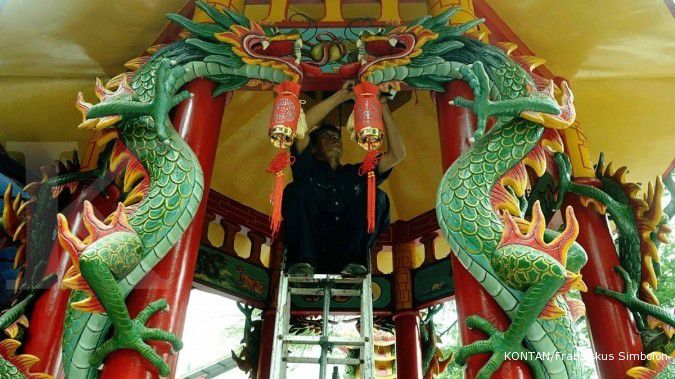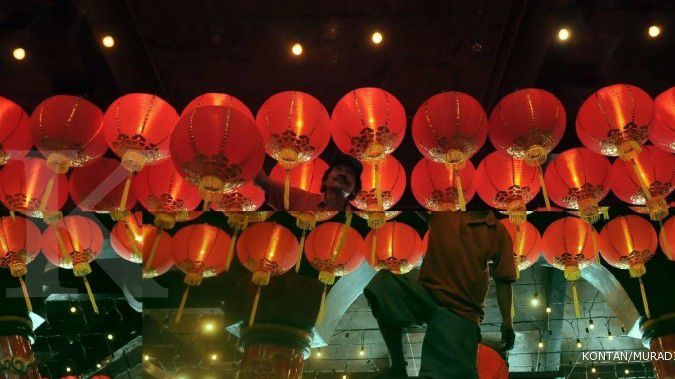PALEMBANG/SURABAYA/PONTIANAK. Chinese-Indonesians across the archipelago are getting ready for big celebrations to mark the start of the Chinese New Year on Sunday.
Preparations are well underway on Kemaro Island, located in the middle of the Musi River in Palembang, South Sumatra, which is one of the largest centers for the celebration of the holiday, known locally as Imlek, in Southeast Asia.
“Thousands of visitors flock to this island to celebrate Imlek and Cap Go Meh,” Kemaro Island gatekeeper Burhan said, referring to the celebration that ends 15 days of Imlek festivities.
Burhan said that visitors came to the island from several different countries, including China, Malaysia, Singapore, Taiwan, Thailand, Vietnam and the US. “They come to pray to the Gods of the Earth for good fortune and for soulmates.”
The island, according to Burhan, is famous for the legend of two star-cross’d lovers: Tan Bu An, a Chinese, and Siti Fatimah, a local girl.
Many believe that those who come to the island with their spouses will be blessed with eternal love, just as in the legend. Burhan said that some Muslims also came to the island to visit Siti Fatimah’s grave.
The organizing committee for the local Imlek celebration said that 160 goats have been readied for slaughter for the holiday. “In other places people mostly cook pork, but we slaughter goats, because we also have Muslim visitors from Palembang,” Burhan said.
In Surabaya, East Java, musician Wilson Sucipto was seen busy cleansing his erlhu, a traditional two-stringed Chinese violin, on Thursday in preparation for Imlek.
Wilson is a member of the Marcel Traditional Chinese Orchestra, which he said was the only professional Chinese traditional music ensemble in Surabaya.
Although expensive to book — a 30-minute gig costs Rp 5 million (US$515) — orders kept on coming in, the 50-year-old said. The group has been fully booked until Feb. 25.
A representative of the Senopati Foundation in Surabaya, which focuses on classes in Chinese traditional music, barongsai, ping pong and dance, said the foundation was similarly booked.
Foundation executive A Chiang said that Senopati was non-profit and kept its rates down. Hosts need only pay for the transportation and pocket money of performers, which usually ran to about Rp 500,000 each.
In Pontianak, West Kalimantan, Chinese Indonesians have started to buy Imlek accessories and decorative ornaments, while, in Semarang, Central Java, the Semawis Imlek Market will run from Wednesday to Friday to welcome the holiday.
Different entertainment ranging from dance performances, music and potehi puppet shows are on offer at the event, as well as food, fashion products, Imlek accessories, Chinese cigarettes and medicine and even fortune tellers.
“This is the 10th time that we have held the Semawis Imlek Market. The idea is to make Pecinan as a tourist destination,” Semarang Pecinan (Chinatown) Tourism Community leader Harjanto Halim said.
Chinese Indonesians are now free to celebrate Imlek openly, following 32 years of supression of their language and culture under the rule of Soeharto. (Ansyor Idrus, Wahyoe Budiwardhana and Severianus Endi, The Jakarta Post)
Peluang Usaha














